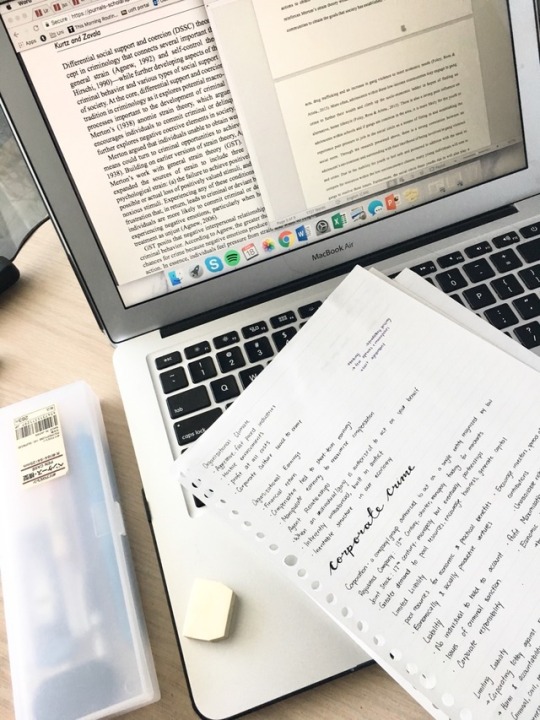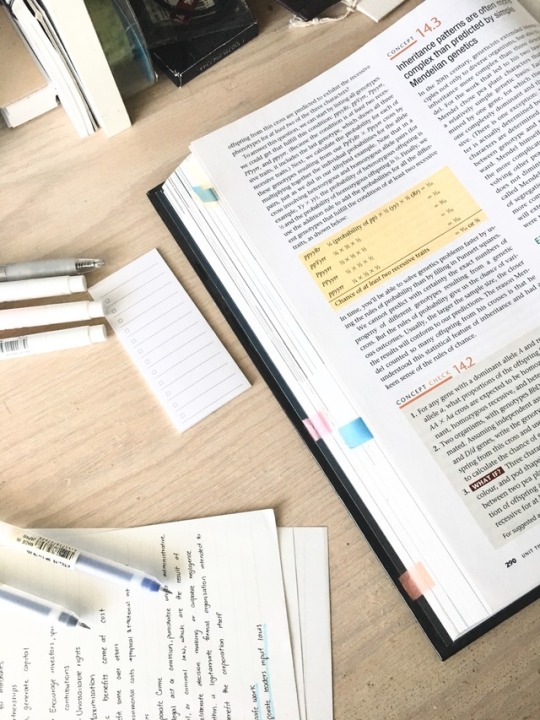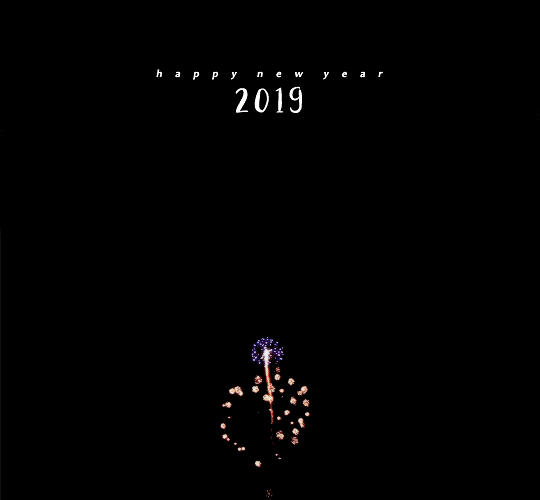Reading ♡ Studying Comp Lit ♡ Nerdyy ♡ Icon by @stvdybuddies ♡ 19 years young was: PamperedStudies99
Don't wanna be here? Send us removal request.
Text
Je t'ai dit que rien est possible entre nous. Car je dois vivre avec les conséquences de nos actions, quand tu m'as montré que tu peux simplement trouver quelqu'un autre.
Maintenant, je vis dans la malheur de nos décisions, et tu restes calme en ignorance.
28 notes
·
View notes
Text
Rien du tout #13
Je ne sais pas s'il y a un autre, peut-être mieux mode de dire ça.
Mais je ne sais pas si je peux sentir quelque chose pour quelqu'un autre après qu'on s'est embrassé cette nuit, presque à matin. Je l'ai essayé une fois. C'est pas possible.
Parce que personne n'est toi.
8 notes
·
View notes
Text
Academic writing advice inspired by Umberto Eco’s ‘How to Write a Thesis’:
Planning
Determine primary sources/bibliography.
Determine secondary sources/bibliography.
Find title.
Brainstorm a table of contents with as much detail as possible (with chapters, sections and even paragraphs and sub-paragraphs - see How to Write a Thesis’ own table of contents as an example at the end of this document) (if the first drafted table of contents is good enough, it will not be necessary to start the writing from the beginning).
Do a first draft of the introduction.
Note-taking and research
Use Google Scholar to make sure you do not miss important sources.
Keep the table of contents in mind when researching and take notes of which sources could go where.
While note-taking, differentiate which parts could be used as quotations from the ones that are simply important for the argument.
Eco underlines the importance of what he calls reading sheets, which can be understood as your notes on your readings. According to him, these should contain:
information about the author if he is not a well-known figure;
a brief (or long) summary;
they should mostly consist of quotations (accompanied by all the corresponding page numbers)
any commentaries you might want to add;
an indication of which part (or parts) of your table of contents the information mentioned belongs to.
Keep reading sheets on primary sources (which should be the longest) separate from those on secondary sources (which should only be 1-2 pages long).
In the end, re-read the notes and color-code all the different parts according to where they would fit in your table of contents.
Writing and editing
A good place to start would be by redrafting the introduction.
Define every key/technical term used/mentioned unless indisputably obvious.
General writing tips:
keep sentences short;
do not be afraid to repeat the subject twice (ex: Roberta went to the shop (…) Roberta bought carrots and tomatoes);
avoid excessive details;
avoid subordinate clauses (orações subordinadas);
avoid vague language;
avoid unnecessary adjectives;
avoid the passive voice.
While drafting, write everything that comes to mind. Leave the editing for the end.
Use your tutor as a Guinea pig. Make them read your first chapters (and, progressively, all the rest) well before delivery is due.
Ask for as much feedback as possible. Ask colleagues, friends and/or family to read your work. They will provide you with more diversified feedback, as well as allowing you to know if your writing is clear to anyone.
Stop playing ‘solitary genius’.
Don’t insist on starting with the first chapter. Start with what you know best and feel more comfortable writing about, then fill in the gaps.
Leave time for editing and try to take at least a one or two days long break in between writing and editing.
Do not forget to fill in the gaps. When you revisit your writing, go through it with all these writing tips in mind as well as a conscience of what your most common mistakes are.
Use Hemingway in the final editing phase.
Quotations and footnotes
Since there are two kinds of sources (primary and secondary), there are also two kinds of quotations: either we quote a text which we will interpret, or we quote a text which supports your interpretation.
Some quotation rules to know:
“Quote the object of your interpretive analysis with reasonable abundance.”
“Quote the critical literature only when its authority corroborates or confirms your statements. (…) when quoting or citing critical [aka secondary] literature, be sure that it says something new, or that it confirms authoritatively what you have said.”
“If you don’t want readers to presume that you share the opinion of the quoted author, you must include your own critical remarks before or after the passage.”
“Make sure that the author and the source of your quote are clearly identifiable.”
“When a quote does not exceed two or three lines, you can insert it into the body of the text enclosed in quotation marks. (…) When the quote is longer, it is better to set it off as a block quotation. In this case the quotation marks are not necessary, because it is clear that all set-off passages are quotes, and we must commit to a different system for our observations. (Any secondary developments [like the quote’s reference] should appear in a note.) (…) This method is quite convenient because it immediately reveals the quoted texts; it allows the reader to skip them if he is skimming, to linger if he is more interested in the quoted texts than in our commentary, and finally, to find them immediately when need be.”
Some footnote rules to know:
“Use notes to add additional supporting bibliographical references on a topic you discuss in the text. For example, ‘on this topic see also so-and-so.’”
“Use notes to introduce a supporting quote that would have interrupted the text. If you make a statement in the text and then continue directly to the next statement for fluidity, a superscript note reference after the first statement can refer the reader to a note in which a well-known authority backs up your assertion.”
“Use notes to expand on statements you have made in the text. Use notes to free your text from observations that, however important, are peripheral to your argument or do nothing more than repeat from a different point of view what you have essentially already said.”
“Use notes to correct statements in the text. You may be sure of your statements, but you should also be conscious that someone may disagree, or you may believe that, from a certain point of view, it would be possible to object to your statement. Inserting a partially restrictive note will then prove not only your academic honesty but also your critical spirit.”
“Use notes to provide a translation of a quote, or to provide the quote in the original language.”
10K notes
·
View notes
Text


Yay for new coffee places in the city! ☕️
(And double yay because they have salted caramel lattes and they’re sooooo good!)
4K notes
·
View notes
Photo




full spread / close-ups / behind the scenes quality isn’t great sorry so don’t zoom in ;-;
pic creds to peter ash lee for vogue and @/bonvivantx
ig: kairojo
2K notes
·
View notes
Photo

29.4.17
Time to start prepping for finals. I only have one written exam but I have so many other things to do! And so many papers! :(
Good luck on finals everyone!
xx Sunny
12K notes
·
View notes
Photo


03/18/2018 • sociology on the left and biology on the right so if I get sick of one subject I can quickly switch gears to the next lol :)
11K notes
·
View notes
Text


13.02.19
taking a week off before reading week staying at my friends house so we can have a weeklong study/work sesh ☺️
she does textiles so she’s a lot more practical than my note taking, keeps the space colourful 🥰
12 notes
·
View notes
Text
the most tedious part of studying english literature is all of the feminist readings solely focused on discussions of women “gaining agency”……. how about for once we discuss the topic of women “going feral” or even “hogwild”
11K notes
·
View notes
Text

Hiya peeps,
I know, I know, I know...
It's been over a month since I last posted and I'm sorry.
So here's a much due update on me life.
Also, go follow my new French blog : @frenchfats where I will document my French learning experience. I already studied French for about 5 years as part of the school curriculum but I kinda forgot it over the last 2 years. Thus, je réapprendrai le français. Wish me luck, lmao.
As some of you may know...I'm a dyslexic student. One of the consequences of being dyslexic is that I get anxiety over reading long books. I find it daunting and spine chilling. But since its the new year (or rather February), I am challenging my dyslexic ass to read the famous Harry Potter series. I have watched each movie religiously growing up (and still do).
Yes, I'm a literature student and no, I have never read them. I know - I'm ashamed too... hence the challenge.
I vow to be more consistent this year. I promise.

#study tips#studyblr#study motivation#study#notes#qmul#study sesh#studying#university#uni issh#uni life#complit#englit#studyspo#essays#study notes#reasons to study#school tips#stress relief#studygram#all nighters#cramming#cute studyblr#dyslexic studyblr#procrastination#i should probably go back to study#frenchblr#new years resolutions
12 notes
·
View notes
Text
Happy New Year, my loves😚

May this year bring joy, ultimate productivity and endless love.
7 notes
·
View notes
Text
hello my dash is so dead if ur an active studyblr reblog this I wanna follow some !!!!
61 notes
·
View notes
Text
18 things i’ve learnt in 2018
1. Sometimes the dreams you’ve had weren’t meant to be and that’s fine. Your calling could be elsewhere so keep an open mind.
2. Thrust yourself in uncomfortable situations. Be comfortable with the uncomfortable.
3. Don't be afraid to say HI to people. That is how you will meet your crazy soulmates.
4. You will clash with people’s beliefs and ideas. That’s okay.
5. People will drift away from you and you will drift away from people. That’s life.
6. Getting the highest percentage in an essay is NOT what university is all about. Tone down your competitiveness and live a little.
7. Be proud of every achievement.
8. Dyslexia is a bitch - but so are you, honey.
9. Don't stop loving with all your heart.
10. Remember this: you LIVE and you LEARN; you LOVE and you LAUGH.
11. Adulting means handling your shit right and taking responsibility.
12. Don’t rush yourself at anything. Everyone is working at their own pace.
13, Hell to the toxic people.
14. Keep in touch with those dearest to you.
15. University will seem like a bubble. Don't forget to remember the rest of the world.
16. Meeting people on the internet is not that scary.
17. People will doubt you. Walk tall regardless.
18. Have no regrets.
P.S. this was inspired by @alqorithms . Thanks, love.
19 notes
·
View notes
Text
Like or reblog if you would like me to show some spreads from my bujo...

Ignore the bad December lighting lmao
#im stunting w/ my cheap primark nails#lmao bye#study sesh#study notes#dyslexic studyblr#studyspo#studygram#bujo#bujocommunity#bujolove#my bujo
2 notes
·
View notes
Text
Update on Thursday 20.Dec.2018 plan
So... it's four in the afternoon and I have done nothing productive..
I know there's no need to rush since this holiday is about rejuvenating and my essay is due on the 6th of January...
But I did want to be productive today..
#oh wells#study sesh#study tips#studying#study#study notes#dyslexic studyblr#study motivation#studyspo#studyblr#studygram#uni issh#uni life#university#qmul#goerners essay is doing my head in#i have zero clue on what to write#my degree is a joke right now
1 note
·
View note


